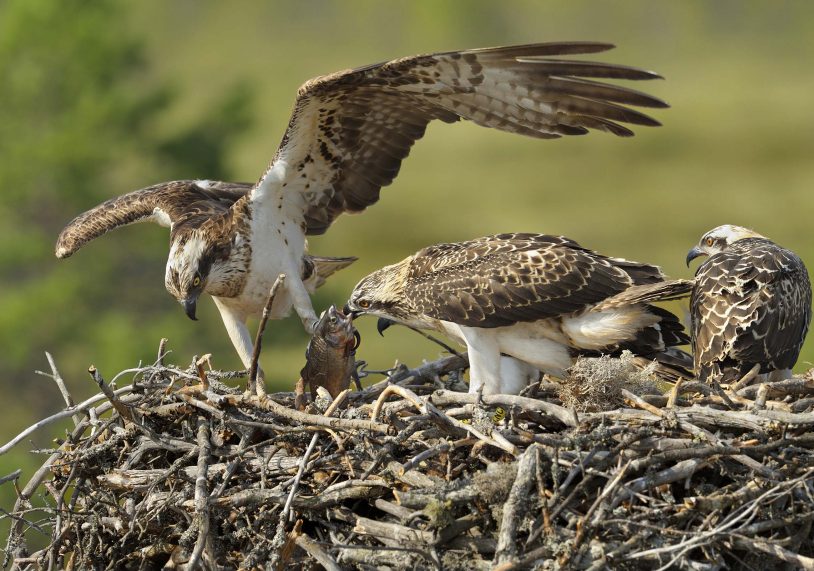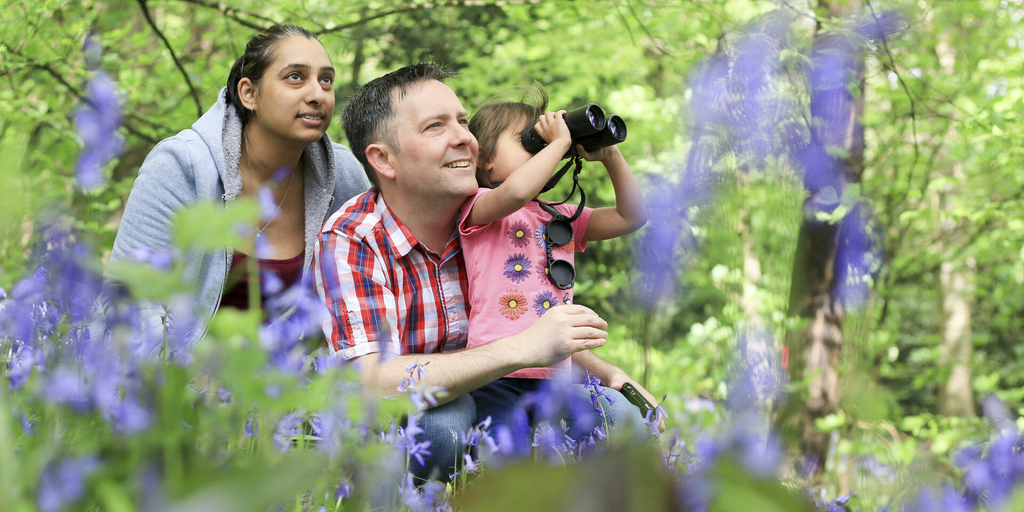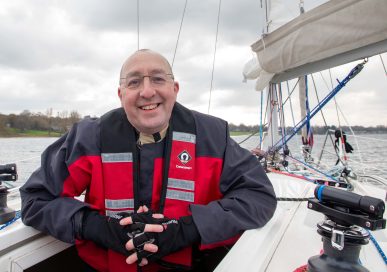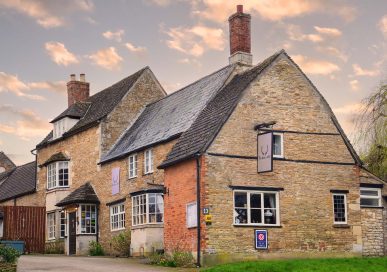Just before Covid hit, the Leicestershire & Rutland Wildlife Trust welcomed its new CEO Tim Graham to his new role. Needless to say, the previous year hasn’t exactly been run of the mill, but Tim is confident that with the Trust’s latest projects and with its 35 reserves and 3,084 acres of green spaces, there’s plenty of opportunity for local residents to get back out and enjoy the natural world…

What’s the expression? You don’t know what you’ve got, ‘til it’s gone. That certainly appears to have been the case in the last year, with lockdown introducing an unprecedented curtailing of personal freedoms.
Suddenly, faced with the reality of not being able to venture out, to socialise or to stray far from home, many felt a sense of isolation and a sense of claustrophobia. Many, too, realised that they took for granted and missed the natural world.
Covid presented a set of really unusual circumstances for our Wildlife Trust-managed reserves and green spaces. And the effects of the past year – both positive and negative – are reverberating around the country’s 46 Trusts.
“We’ve found that people are keen to once again enjoy going out and about,” says Tim Graham, CEO of the Leicestershire and Rutland Wildlife Trust.
“We sensed that people were starting to really miss the small pockets of green spaces that they’d almost come to take for granted.”
“Online engagement with the Trust’s activities increased a great deal and there seems to be a newly refreshed sense of appreciation and understanding for the role that green spaces play in our lives.”
Tim was born and raised in the market town of Ormskirk in West Lancashire, and after completing his PhD in Ecology at the University of Sheffield, he began a 15-year long career working for the UK’s Wildlife Trusts, spending three years as CEO of the Manx Wildlife Trust on the Isle of Man before coming to work for the Leicestershire & Rutland Wildlife Trust in November 2019.
Needless to say it was not the year he was expecting as he undertook his new position, but Tim is positive both for our local trust and for conservation more generally.
“Conservation, alongside climate change, is finally getting the recognition it deserves. It’s no longer seen as the preserve of ‘eco-warriors,’ but rather it’s a subject that’s now mainstream, and it’s really able to motivate people to change their habits to suit the planet.”
“People used to watch documentaries by naturalists like David Attenborough and just enjoy the spectacle, but now they’re watching each series with this real sense of context, that these are the environments all around the world which need protecting and preserving.”
“Figures like Greta Thunberg have also shown how motivated people can be when lobbying for change. So it all feels rather different now, like there’s a greater sense of motivation, with all to play for.”
“Wildlife Trusts in the UK can keep people in touch with their local countryside and the habitats and species specific to their area.”
“We can show the importance and the benefits of conservation and we can provide education, but we also help to maintain those habitats and reserves for future generations to enjoy.”
“We have a purpose, too, in terms of the professional knowledge we have in motivated conservation – knowing when and how to intervene responsibly in the preservation of a habitat or a species.”
“As far as is ideal, nature can – and sometimes should – self-manage, so knowing how much intervention is needed is part of our work. In an ideal world we give a nudge to the natural conservation processes and help direct nature towards its own positive outcomes.”
“Trying not to over-manage an area is one part of the work that remains important to the Wildlife Trusts, but there are other considerations too.”
“Footfall is a real conundrum in the long term because visitors are an essential way to make conservation visible to the public.”
“They must see the work we do and understand its importance, but visitors to a site inevitably have an impact, so managing that presents unique challenges.”
“The more people visit a site, the more the impact is felt, both in terms of inadvertent problems – like the wearing down of footpaths – to advertent antisocial behaviours such as littering, flytipping, barbecues and dog fouling.”
“The sites that we manage must be made available to the public but at the same time, we have to ensure that visitors take responsibility for their presence at each site.”
“Our fear was that a lack of visitors to our sites, joining the trust, renewing their memberships or purchasing coffee and cake in visitors’ centres, or tighter household budgets, might lead to a significant drop in memberships.”
“That didn’t happen, for which we’re grateful and relieved. We’ve around 16,000 members who are absolutely vital to ensure we can continue our work.”
“Our annual costs are around £2m a year, and that’s to maintain our existing sites and projects, before we think about any ambitions that we have to develop sites and embark on new projects.”
“We’re also dependent on and grateful to our 700 volunteers who work with our 38 members of staff to maintain our 35 nature reserves and 3,048 acres.”
“Their work is of huge importance and enables us to continue to find ways to provide education and engagement opportunities.”
“In Leicester, our volunteers enable us to take the ‘forest school’ experience into the classroom, for example.”
“We’ve been inspired by the way our audiences have engaged with us online during the pandemic, and so in June we’re joining with the other Wildlife Trusts to encourage the public to take part in 30 Days Wild. The project asks people to enjoy one nature challenge or experience or to perform a ‘random act of kindness’ towards nature every day.”
“Turn off the radio to listen to birdsong; take a second to appreciate the rain; pick up three pieces of litter; it could be anything, but just doing something to be in harmony with the natural world will encourage people to make time for nature. We first ran the project in 2020 and half a million people got involved.”
“We’re hoping that even more people will engage with the project this year and feel the benefit.”
“Lockdown has shown that nature can play a real part in improving mental health, and so we’re also hosting a series of Wild Wellbeing Walks. These will take be facilitated in the calming surroundings of Rutland Water, so we’re encouraging employers to invest in their teams’ mental wellbeing.”
“Being outside increases our activity levels and improves our physical health. It also boosts our social and psychological wellbeing by reducing stress and anxiety, increasing positivity and self-esteem.”
As a Wildlife Trust we can connect people to their local environment. It’s good for physical health, mental health and it’s a way that we can encourage people to engage with conservation not just at an international or national level but right here in Leicestershire and Rutland.”
“My son Arlo is three and a half, and with Kate my partner and our dog, together we’ve enjoyed discovering over the past year, more than ever, that our local area has lots of places to explore and enjoy, from Rutland Water to Charnwood Forest. The positivity this provides and the difference it makes – finding solace in nature – is rewarding and inspiring. As a Trust, we want to share that with everyone.”
Join the trust and help to look after the county…
By becoming a member of Leicestershire and Rutland Wildlife Trust, you will help look after local wildlife and the amazing wild places in our area.
“You’ll support us in our work to inspire people about nature, including working with local schools and communities.”
“We care for nature reserves and deliver conservation and education work across the counties of Leicestershire and Rutland.”“Everybody’s experience with wildlife is personal, and joining Leicestershire and Rutland Wildlife Trust can help you to discover more about nature in your local area.”
“You’ll be helping us safeguard Leicestershire and Rutland’s wildlife and ensure that the next generation learns the importance of the natural world.”
“Membership provides a nature reserves guide, exclusive access to member events, a Wild Leicestershire and Rutland Magazine three times a year, and best of all, the knowledge that you are helping to safeguard the best wild places and help wildlife recover in our two counties.”
For any queries regarding membership, of if you’d like to renew or update your contact details, please get in touch with the membership team at [email protected] or call 07831 284 304.







